Related Research Articles

Death of a Hero is a World War I novel by Richard Aldington. It was his first novel, published by Chatto & Windus in 1929, and thought to be partly autobiographical.

Thomas Stearns Eliot was a poet, essayist and playwright. He was a leading figure in English-language Modernist poetry where he reinvigorated the art through the use of language, writing style, and verse structure. He is also noted for his critical essays, which often re-evaluated long-held cultural beliefs.
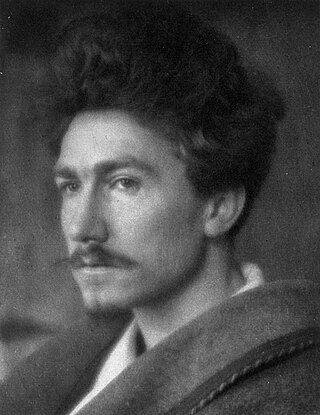
Ezra Weston Loomis Pound was an American poet and critic, a major figure in the early modernist poetry movement, and a collaborator in Fascist Italy and the Salò Republic during World War II. His works include Ripostes (1912), Hugh Selwyn Mauberley (1920), and his 800-page epic poem The Cantos.

Richard Aldington was an English writer and poet. He was an early associate of the Imagist movement. His 50-year writing career covered poetry, novels, criticism and biography. He edited The Egoist, a literary journal, and wrote for The Times Literary Supplement, Vogue, The Criterion, and Poetry. His biography, Wellington (1946), won the James Tait Black Memorial Prize.

Imagism was a movement in early-20th-century poetry that favored precision of imagery and clear, sharp language. It is considered to be the first organized modernist literary movement in the English language. Imagism has been termed "a succession of creative moments" rather than a continuous or sustained period of development. The French academic René Taupin remarked that "it is more accurate to consider Imagism not as a doctrine, nor even as a poetic school, but as the association of a few poets who were for a certain time in agreement on a small number of important principles".

Hilda Doolittle was an American modernist poet, novelist, and memoirist who wrote under the name H.D. throughout her life. Her career began in 1911 after she moved to London and co-founded the avant-garde Imagist group of poets with American expatriate poet and critic Ezra Pound. During this early period, her minimalist free verse poems depicting Classical motifs drew international attention. Eventually distancing herself from the Imagist movement, she experimented with a wider variety of forms, including fiction, memoir, and verse drama. Reflecting the trauma she experienced in London during the Blitz, H.D.'s poetic style from World War II until her death pivoted towards complex long poems on esoteric and pacifist themes.
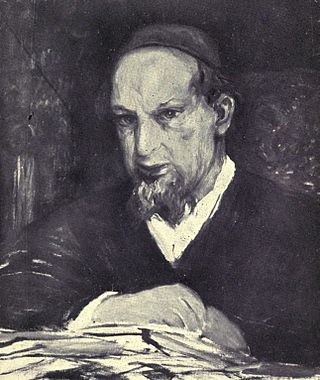
Remy de Gourmont was a French symbolist poet, novelist, and influential critic. He was widely read in his era, and an important influence on Blaise Cendrars and Georges Bataille. The spelling Rémy de Gourmont is incorrect, albeit common.

Tristan Corbière, born Édouard-Joachim Corbière, was a French poet born in Coat-Congar, Ploujean in Brittany, where he lived most of his life before dying of tuberculosis at the age of 29. He was a French poet, close to Symbolism, and a figure of the "cursed poet".

Modernist poetry in English started in the early years of the 20th century with the appearance of the Imagists. Like other modernists, Imagist poets wrote in reaction to the perceived excesses of Victorian poetry, and its emphasis on traditional formalism and ornate diction.
The Objectivist poets were a loose-knit group of second-generation Modernists who emerged in the 1930s. They were mainly American and were influenced by, among others, Ezra Pound and William Carlos Williams. The basic tenets of objectivist poetics as defined by Louis Zukofsky were to treat the poem as an object, and to emphasize sincerity, intelligence, and the poet's ability to look clearly at the world. While the name of the group is similar to Ayn Rand's school of philosophy, the two movements are not affiliated.
Thomas MacGreevy was a pivotal figure in the history of Irish literary modernism. A poet, he was also director of the National Gallery of Ireland from 1950 to 1963 and served on the first Irish Arts Council.
Michael Peter Leopold Hamburger was a noted German-British translator, poet, critic, memoirist and academic. He was known in particular for his translations of Friedrich Hölderlin, Paul Celan, Gottfried Benn and W. G. Sebald from German, and his work in literary criticism. The publisher Paul Hamlyn (1926–2001) was his younger brother.
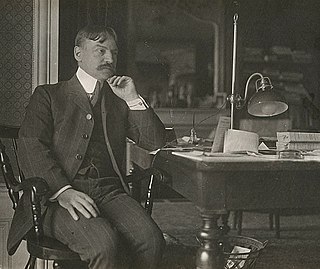
Julien Benda was a French philosopher and novelist, known as an essayist and cultural critic. He is best known for his short book, La Trahison des Clercs from 1927.

The Egoist was a London literary magazine published from 1914 to 1919, during which time it published important early modernist poetry and fiction. In its manifesto, it claimed to "recognise no taboos", and published a number of controversial works, such as parts of Ulysses. Today, it is considered "England's most important Modernist periodical."
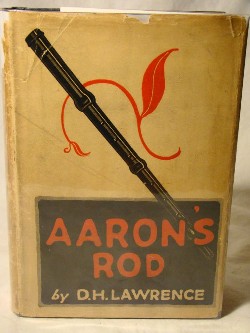
Aaron's Rod is a picaresque novel by D. H. Lawrence, started in 1918 and published in 1922.
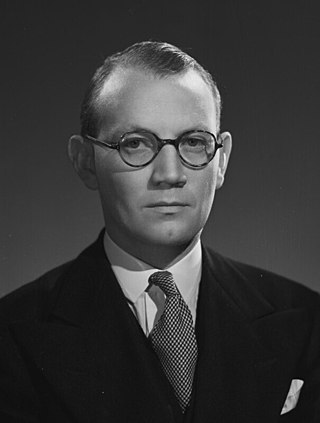
Brigadier Toby Austin Richard William Low, 1st Baron Aldington, Baron Low,, known as Austin Richard William Low until he added "Toby" as a forename by deed poll on 10 July 1957, was a British Conservative Party politician and businessman. He was however best known for his role in Operation Keelhaul, the forced repatriation of Russian, Ukrainian and other prisoners of war, some of whom had collaborated with the Nazis, to the Soviet Union where many of them were executed or sent to labor camps. After he was accused of war crimes in the late 1980s, he successfully sued his accusers for libel.
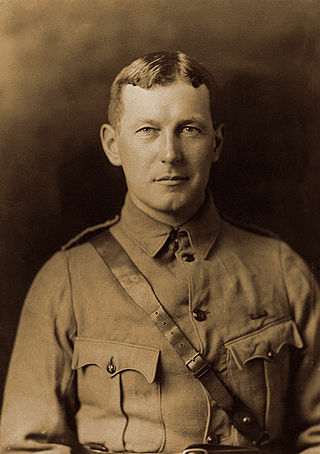
Nationality words link to articles with information on the nation's poetry or literature.
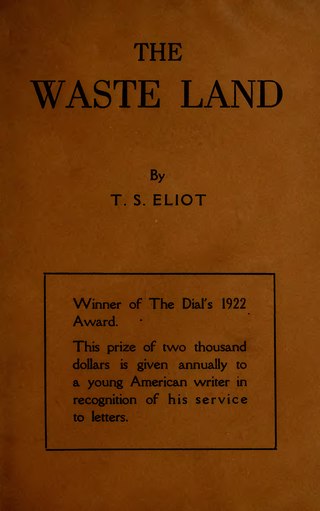
The Waste Land is a poem by T. S. Eliot, widely regarded as one of the most important English-language poems of the 20th century and a central work of modernist poetry. Published in 1922, the 434-line poem first appeared in the United Kingdom in the October issue of Eliot's magazine The Criterion and in the United States in the November issue of The Dial. Among its famous phrases are "April is the cruellest month", "I will show you fear in a handful of dust", and "These fragments I have shored against my ruins".

Vivienne Haigh-Wood Eliot was the first wife of American-British poet T. S. Eliot, whom she married in 1915, less than three months after their introduction by mutual friends, when Vivienne was a governess in Cambridge and Eliot was studying at Oxford.
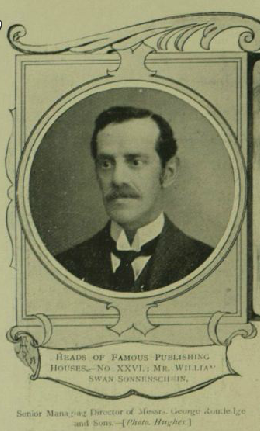
William Swan Sonnenschein, known from 1917 as William Swan Stallybrass, was a British publisher, editor and bibliographer. His publishing firm, Swan Sonnenschein, published scholarly works in the fields of philosophy and the social sciences. as well as general literature and periodicals. In 1902 he became the senior managing director of the British publishing firm George Routledge & Sons.
References
- 1 2 Norman T. Gates (2008). Richard Aldington. Penn State Press. p. 76. ISBN 9780271028446.